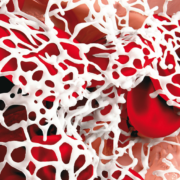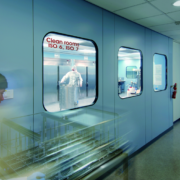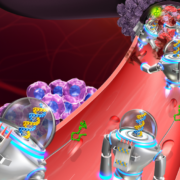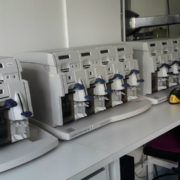One of the world’s largest and most controversial mergers in the past few years was sealed in early June. German pharma and chemistry company Bayer has taken over US competitor Monsanto, forming the largest integrated provider of seeds, agrochemicals and digital farming solutions on the planet. The acquisition is part of a recent US$170bn deal binge that is already having a profound impact on the future of global agriculture.
ADVERTISEMENT
About 25% of the people who suffer from haemophilia A have no therapeutic options, because their immune system forms antibodies against clotting products that can stop bleeding. Researchers and companies in the growing US$15.8bn haemophilia market are feverishly exploring new ways to identify patients at risk and offer them alternative treatments. A series of mergers and acquisitions have changed the playing field for established markets and players.
Biological Industries (BI) develops, manufactures, packs, and supplies cell culture products for academic research, diagnostic labs, hospitals, and the biotechnology and biopharmaceutical industries. BI specialises in serum-free, xeno-free, animal component-free media, as well as contract manufacturing services that range from raw material supply, through labeling and packaging, to ready-to-market product.
Once confined to speculative and science fiction, miniature micro- or nanobots targeting pathogens or conditions directly have now become reality in research labs worldwide. But to enter clinical trials, scientists still have to overcome two major hurdles – visualising the tiny machines inside the body, and preventing a potential immune response.
Spanish Capital Cell continues to be a pioneer in the health crowdfunding scene and launched a new self-funding fundraising round to create the first ICO marketplace for health via Blockchain.
Analysts say Roche’s bispecific antibody Hemlibra will rock the US$15bn haemophilia A market, given that it may circumvent therapy resistance that affects the 30% of patients who form antibodies against recombinant factor VIII products. European Biotechnology spoke with Dr. Gallia Levy, Associate Group Medical Director at Roche, who led clinical development of Hemlibra.
It was too good to be true. Following harsh criticism from industry, the European Patent Office (EPO) drafted a widely applauded proposal to allow exemptions to its Early Certainty Initiative in Examination. One month later, the EPO withdrew UDEC following a recommendation from Business Europe – the only business association sitting next to decision-makers in the EPO’s Administrative Council – not to bring UDEC into force in July.
Two listed Scandinavian biotech companies are about to merge into one. Medical Prognosis Institute A/S (Nasdaq First North Stockholm) in Denmark and Oncology Venture Sweden AB (Aktie Torget) in Sweden aim to create what they call a one-stop-shop for personalised cancer treatments.
In Brussels, European Commissioners Jyrki Katainen and Carlos Moedas proposed a budget increase of 25% for the next European Research and Innovation programme Horizon Europe (2021-27) compared to Horizon 2020. Insummer, however, the EC’s High LevelGroup recommended a budget of at least €120bn.
How do novel technologies affect the world’s largest enzyme producer? At the GBS, European Biotechnology asked Thomas Videbaeck, PhD, COO and Executive VP Research, Innovation and Supply.








